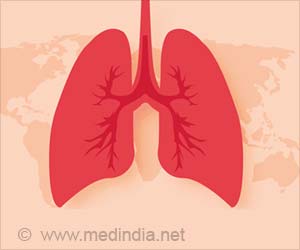An infection that often goes undetected can inhibit lung's natural protective response against tobacco smoke, a study by researchers at National Jewish Health has found.
In the study conducted using a mouse model the Mycoplasma infection completely blocked their protective response against tobacco smoke."Although smoking is the overwhelming cause of chronic obstructive pulmonary disease (COPD), only 20 percent of smokers develop the disease," said Brian Day, senior author on the study and Professor of Medicine at National Jewish Health.
"Our findings suggest that Mycoplasma pneumoniae (Mp) infection may be one of the co-factors that lead to COPD and other diseases among smokers," he added.
The researchers found that mice exposed to tobacco smoke for 16 weeks doubled the amount of the antioxidant glutathione in the fluid bathing the airways.
The antioxidant reacts with the reactive species in tobacco smoke, thus preventing damaging reactions with lung tissue.
"This natural protective response actually allows people to smoke," said Day. "Without it, all smokers would suffer significantly more lung damage."
Advertisement
"This resulted in severe oxidative stress and increased tissue damage as measured by oxidized DNA.
Advertisement
Source-ANI
RAS/V













